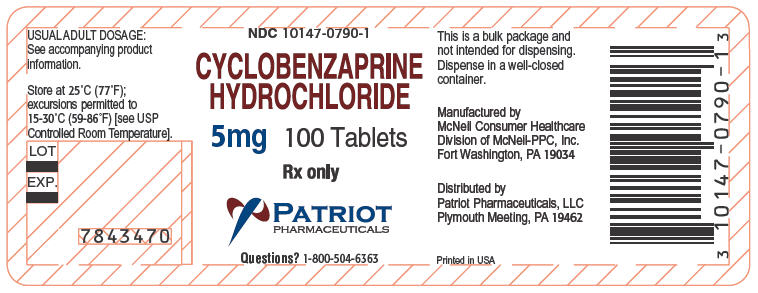
Cyclobenzaprine Hydrochloride Cyclobenzaprine Hydrochloride 650 Mg while Breastfeeding
What is Cyclobenzaprine Hydrochloride Cyclobenzaprine Hydrochloride 650 Mg used for?
Can I continue breastfeeding if I am using Cyclobenzaprine Hydrochloride Cyclobenzaprine Hydrochloride 650 Mg? How long does it stays in breast milk?

Nursing Mothers It is not known whether this drug is excreted in human milk. Because cyclobenzaprine is closely related to the tricyclic antidepressants, some of which are known to be excreted in human milk, caution should be exercised when cyclobenzaprine is administered to a nursing woman.
Cyclobenzaprine Hydrochloride Cyclobenzaprine Hydrochloride 650 Mg Breastfeeding Analsys
Cyclobenzaprine hydrochloride while Breastfeeding
Low RiskCAS Number: 303-53-7
Relaxant drug of the muscle with action on the Central Nervous System and chemically related to tricyclic antidepressants. At latest update, relevant information on excretion into breast milk was not found. Because of a high plasma protein binding capacity, excretion into breast milk seems to be unlikely. Long-term treatments or those mothers who are nursing a newborn or premature infant would be prudent the use of a known safer alternative or with a shorter elimination half life. Infants should be monitored for sleepiness.
Cyclobenzaprine Hydrochloride Cyclobenzaprine Hydrochloride 650 Mg Breastfeeding Analsys - 2
Cyclobenzaprine hydrochloride while Breastfeeding
CAS Number: 303-53-7
If cyclobenzaprine is required by the mother, it is not necessarily a reason to discontinue breastfeeding. However, because there is no published experience with cyclobenzaprine during breastfeeding, other agents may be preferred, especially while nursing a newborn or preterm infant, or when other drugs that can cause sedation are used simultaneously.

What should I do if I am breastfeeding mother and I am already exposed to Cyclobenzaprine Hydrochloride Cyclobenzaprine Hydrochloride 650 Mg?
Cyclobenzaprine Hydrochloride Cyclobenzaprine Hydrochloride 650 Mg is in the category of low risk, if you have already used it then its not a big deal if health and behavior of baby is good. However your health care provider shall be aware of the fact that you have used Cyclobenzaprine Hydrochloride Cyclobenzaprine Hydrochloride 650 Mg so you should inform him based on your convenience.
My doctor has prescribed me Cyclobenzaprine Hydrochloride Cyclobenzaprine Hydrochloride 650 Mg, what should I do?
Cyclobenzaprine Hydrochloride Cyclobenzaprine Hydrochloride 650 Mg comes in category of low risk and if your doctor is aware that you are breastfeeding it should be ok to use
If I am using Cyclobenzaprine Hydrochloride Cyclobenzaprine Hydrochloride 650 Mg, will my baby need extra monitoring?
Not much monitoring required while using Cyclobenzaprine Hydrochloride Cyclobenzaprine Hydrochloride 650 Mg
Who can I talk to if I have questions about usage of Cyclobenzaprine Hydrochloride Cyclobenzaprine Hydrochloride 650 Mg in breastfeeding?
US
National Womens Health and Breastfeeding Helpline: 800-994-9662 (TDD 888-220-5446) 9 a.m. and 6 p.m. ET, Monday through Friday
UK
National Breastfeeding Helpline: 0300-100-0212 9.30am to 9.30pm, daily
Association of Breastfeeding Mothers: 0300-330-5453
La Leche League: 0345-120-2918
The Breastfeeding Network supporter line in Bengali and Sylheti: 0300-456-2421
National Childbirth Trust (NCT): 0300-330-0700
Australia
National Breastfeeding Helpline: 1800-686-268 24 hours a day, 7 days a week
Canada
Telehealth Ontario for breastfeeding: 1-866-797-0000 24 hours a day, 7 days a week
